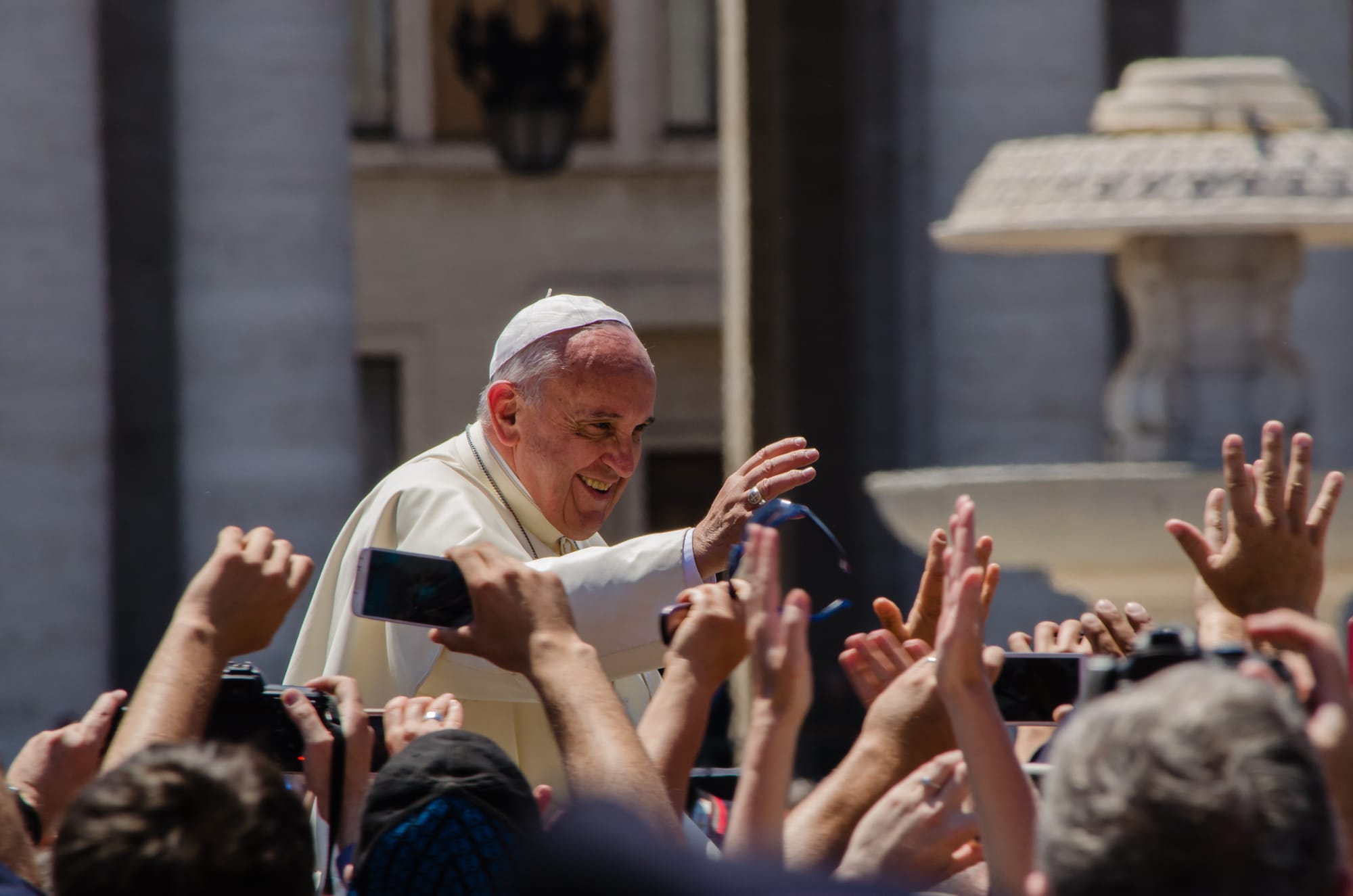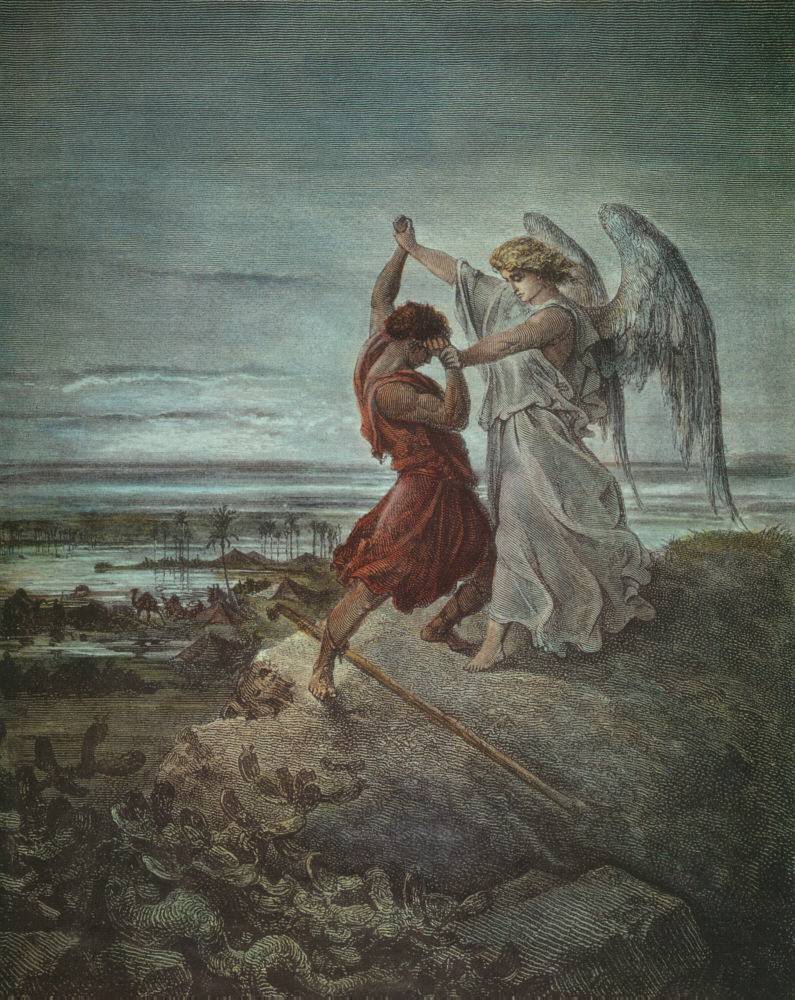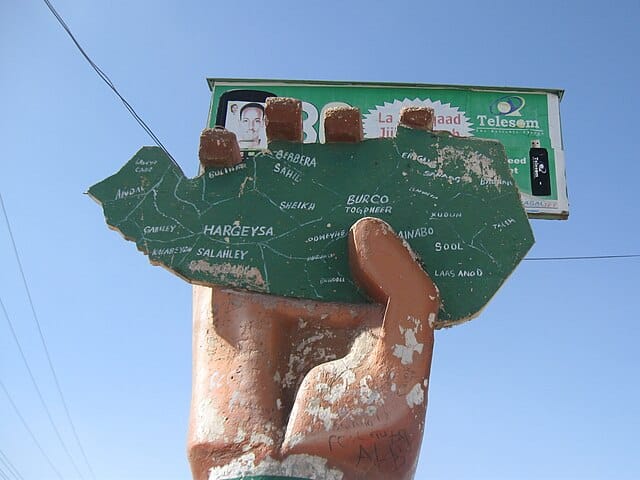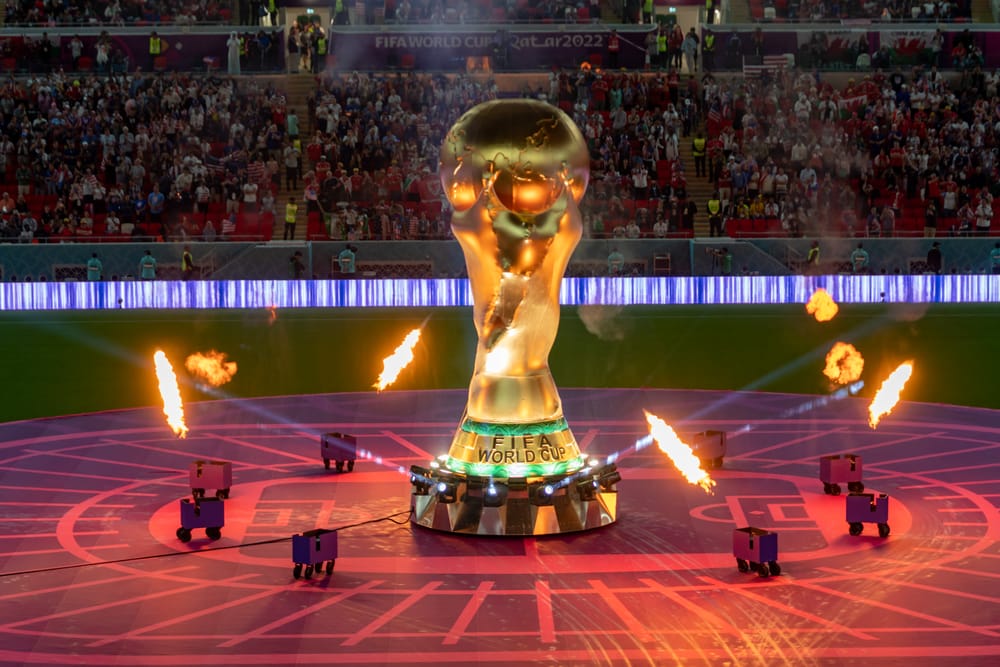The religious authorities we deserve
In choosing service, humility and compassion over deference to power and wealth, Pope Francis offers a model of what Jewish communities should expect from their institutions.

Roughly a month ago, the world was presented with a unique, unadulterated window into the inner-workings of the Trump administration when a prominent journalist published the contents of a private Signal conversation he was accidentally invited to. The exchange, which involved Secretary of Defense Pete Hegseth, National Security Adviser Mike Waltz and Vice President JD Vance, offers a play-by-play account of targeted airstrikes in Yemen, peppered with the gleeful responses of those blessed enough to be in on the action.
While media commentary has primarily focused on the egregious security lapses, MAGA’s increasing capture of national security decision-making and the juvenile behaviour of high-ranking officials on display, I was instead struck by the more emotive interjections into this conversation. For, alongside tone-deaf lamentations of “European freeloading” and excessive self-congratulation over the bombing of remote, largely defenceless locations from a position of safety and comfort, was the recourse to frivolous religious gestures. This included Hesgeth and Vance seeing off the mission with respective exhortations of “Godspeed to our warriors” and a “prayer for victory”, accompanied by a flurry of prayer emojis sent by others among this band of keyboard warriors, all in reference to an operation that ultimately took the lives of around 75 Yemenis.
Of course, America’s fusion of religion and state violence (both at home and abroad) is in no way new. Nevertheless, the pathetic, cruel, faux piousness exhibited in that group chat is a far cry from the all-conquering, crusader-esque zeal of the Bush Jr years. In the transition from imperial triumph to imperial decline, such religiosity has become merely one of many sources of social capital to be mined by grifters to exhaustion, to squeeze any last drop of value out of a morally and economically bankrupt world. At least, to borrow a line from the Big Lebowski, the old neoconservatives had an ethos, however depraved – what we are now left with is a nihilistic religion grafted onto a nihilistic relationship towards fellow humanity and nature. Yes, we are ruining the planet, but, to compensate, at least we can temporarily revel in an orgy of raw power and purifying destruction, while engaging in fantasies of “spiritual warfare” against self-manufactured demons.
Pope Francis: the meek shall inherit the earth
What place is there in this depraved, soulless religious milieu for a man like Pope Francis, who will be laid to rest tomorrow, after 12 years occupying the Catholic Church’s highest office? When religion becomes an unedifying, pitiable servant to the revival of radical, authoritarian and exclusionary politics, led by those whose visions are disturbingly apocalyptic rather than upliftingly eschatological, what role can and should such established religious authorities play in countering these forces of darkness? The example set by Pope Francis offers a profound clue.
While I, an ecclesiastical novice, profess no personal insight into Pope Francis’s impact on the Catholic Church, the eulogies and personal accounts that have emerged in the wake of his death reinforce the image of a sincere thinker and practitioner of a renewed faith based on dignity, mercy, hope and joy. After centuries of the waning of the bureaucratic, military and legal power of the Catholic Church, Francis seems to represent the apogee of a different – more morally responsive, conciliatory and exemplary – spiritual custodianship, calling upon leaders and lay believers to heal the wounds wrought by unfettered capitalism, historic colonialism and the abuse of power.
I highlight this laudable body of work neither to join the chorus of praise for a seemingly inspiring individual, nor to appeal to sincere religious commitment as an antidote to the present moment’s cynicism, nihilism and seeming hopelessness – although these too are worthy tasks. One can look elsewhere than a small, anti-institutional Jewish media outlet to learn about the man who for over a decade oversaw the largest Christian institution in the world. What makes Pope Francis’s story relevant to an audience such as ours, beyond his attitude of “openness in truth and in love” towards Jews and other faiths, as well as his “moral clarity” regarding the current plight of Palestinians, is the way it reframes currently taken-for-granted assumptions of the possibilities and limits of religious leadership.
The Board of Deputies: the obsequious shall appropriate the earth
What stands out to me at this moment are the glaring differences between Pope Francis, on the one hand, and the vast majority of our own power-drunk communal leaders, on the other, who have commandeered British Jewish identity, representation and authority in the name of profane and abhorrent political interests. While some, like the Board of Deputies, have a remit closer to social/ethnic interest group than to religious body (although the lines here are themselves blurred), this has not stopped them from instrumentalising religion, selling out all that is sacred and sacrosanct – from the theologically-rich meaning of Israel and the holy covenant, to the solemn, irredeemable sorrow of the Holocaust – in order to consolidate theocratic extremism in the State of Israel, and to stoke tribalism and hatred at home, both within and outside the Jewish community. In contrast, Francis, rather than seek to cement his own pontifical power, embraced the concept of “synodality,” which grants more say and autonomy to local and lay Catholic communities.
Whereas these pro-Netanyahu fundamentalists and opportunists delight in the gratuitous, transgressive power that comes with punishing perceived enemies – including outspoken students, academics and activists from vulnerable, racialised backgrounds – Pope Francis preached and lived the virtues of humbleness, equity, empathy and service, particularly towards the stranger, the migrant, the neighbour. Whatever his practical impact on the souls of statesmen and corporate leaders, one certainly cannot accuse him of building a vocation as co-conspirator and apologist to the powerful. No, rather than make a deal with the devil, he remained steadfast in his beliefs, to the extent that his presence and persona served as unsettling reminders of the injustice and cruelty at the heart of the current global order.
Even so, while an exalted human, Pope Francis remained a fallen, imperfect human. For instance, his record in addressing the Church’s crimes of the past – particularly over the issue of clerical abuse – disappointed many of his progressive champions, and betrayed many victims. Nevertheless, there exists an unbridgeable moral chasm between trying and sometimes failing to live up to one’s ideals out of circumstance, moral frailty, weakness, ignorance and other creaturely limitations, on the one hand, and forsaking those ideals altogether, by placing one’s self-interest and sense of responsibility beyond good and evil, beyond accountability, beyond the interests of common humanity itself, on the other.
Our moral calling
As a contemporary parable, Pope Francis’s legacy certainly presents us with many of the foundations – of both thought and action – of a more fulfilling and hopeful common future. While he offers us few practical or visionary political solutions, the power of his message proves to us that a more dignified, loving and truthful relation to the world is possible, despite the oppressive forces that limit our room for manoeuvre. This “weak messianic power”, as Walter Benjamin might call it, if seized upon by those who choose to pick up where Pope Francis left off, might just serve to expose our current religious leaders as cowardly, deceptive and empty, rather than as the supposedly righteous, infallible and inevitable guardians of the Jewish people which they style themselves as.
Of course, incendiary actors like JD Vance, who just last week tried, unsuccessfully, to enlist the reluctant pontiff into validating his Catholic bonafides, will no doubt use this moment of uncertainty to flood the doctrinal and exegetical arena with mountains of reactionary shit. However, for the rest of us, the task is to ensure that Pope Francis’s path-breaking efforts were not in vain. By repudiating political expediency – whether in the form of relativism, cynicism, vengeance or polarisation – in favour of an ambitious, even if only partially achievable, fidelity to a set of moral principles in the here and now, we not only redefine the true sources of religious authority (justness, wisdom, honesty) over and against these pretenders, but equally lay the foundations for a better future. This doesn’t mean following his specific programme blindly – in areas such as supporting trans inclusivity, for example, he fell far short – but rather taking his message of unity and diversity further, to its logical universalist conclusion.
The endgame of Pope Francis’s vision might not have been liberation, whatever that means. But it surely entailed peace. Not the expedient peace of the tired, timid and desperate, but the righteous peace of unity in diversity, equality and mutual obligation. When it comes to places like Palestine-Israel, the ultimate coalescing point of the major Abrahamic faiths, this is the kind of peace that our leaders fear, and which we must defiantly strive for. In this, I leave the last word to our dearly departed Francis:
“Peace in society cannot be understood as pacification or the mere absence of violence resulting from the domination of one part of society over others. Nor does true peace act as a pretext for justifying a social structure which silences or appeases the poor, so that the more affluent can placidly support their lifestyle while others have to make do as they can…The dignity of the human person and the common good rank higher than the comfort of those who refuse to renounce their privileges. When these values are threatened, a prophetic voice must be raised.” ▼
Matthew Gordon is an academic and international development practitioner, and an editor at Vashti.
Author

Dr Matthew Gordon is an academic and international development practitioner with over a decade of experience working in the Horn of Africa, and an editor at Vashti.
Sign up for The Pickle and New, From Vashti.
Stay up to date with Vashti.



